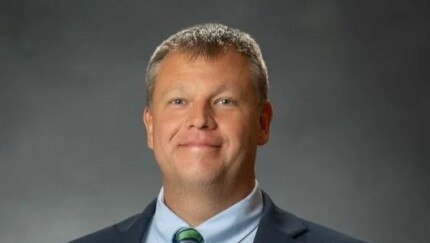A former Next Financial advisor pleaded guilty to carrying out a 14-year, $4.5 million fraud scheme that ensnared more than 30 clients, according to federal prosecutors.
Douglas P. Simanski, 53, allegedly told clients he would invest their money in a “tax-free,” fixed-rate investment, a rental car company and a coal mining firm in which he claimed to have an ownership interest.
In a separate action this month, the SEC barred the former Altoona, Pennsylvania-based advisor. Simanski agreed to the bar and disgorgement of funds as part of a settlement with the SEC,
Neither Simanski nor his attorney were available for comment.
Travis Hoffman is a vice president and account executive in B. F. Saul Insurance's commercial lines practice. With over 18 years of experience designing insurance programs for complex commercial needs, he specializes in real estate, contractor risk, and multifaceted coverage analysis.
Jennifer Neal is a vice president and account executive in B. F. Saul Insurance's commercial lines practice. With over two decades of experience in the industry, Jennifer oversees and manages the commercial book of business and assists with agency policies and procedures.
What began as Transition to RIA founder Brad Wales' informal collection of large firms' division names and account types could turn into a collaborative industry glossary.
Simanski allegedly targeted clients who were unsophisticated investors, senior citizens and longtime brokerage customers, according to the SEC.
He was allegedly vague in describing investments to his clients. He provided them with limited written materials, the commission says. In the case of the purported coal mine investment, he gave investors a one-page note entitled either a “bond” or “investment.” The notes had terms ranging from three to five years and promised investors annual rates of return of between 5% and 6%, according to the SEC.
Simanski allegedly instructed clients to make checks payable to his wife’s personal brokerage account. But no real mining investments were ever made, the SEC says. Instead, he used client funds to pay his own bills or to make payments to earlier investors, the SEC added.

His plan was undone when a client contacted FINRA, which then sent Simanski a letter requesting information about his practice. When Simanski did not respond,
A month prior to his industry bar, Next Financial discharged him for having allegedly “sold fictitious investments and converted the funds for his own personal use and benefit,” according to a note contained in his FINRA BrokerCheck record.
A company spokesman says Next Financial terminated him when he admitted to unauthorized activities and reported him to FINRA, the SEC and the U.S. Attorney’s Office for the Western District of Pennsylvania.
“Over the past 18 months Next has worked proactively with customers who were adversely affected by Mr. Simanski’s actions either through their attorneys or directly to reach a mutually agreeable resolution of their claims. All pending claims have been resolved,” the spokesman said in a statement.
He had been registered with Next since 1999, according to BrokerCheck. He has 23 client disputes listed on his BrokerCheck record. Two were denied, the rest were settled.
A spokeswoman for the independent broker-dealer was unable for immediate comment.
Simanski’s sentencing has been scheduled for April 4,











